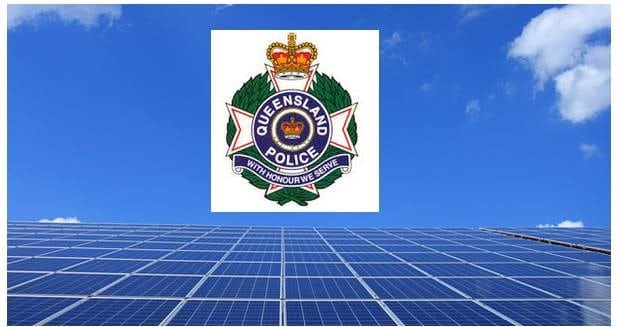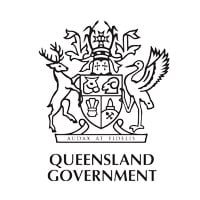The Queensland Police Service (QPS) is the latest organisation to unlock the potential of solar power.
The ongoing Electricity Optimisation Project (EOP) is installing solar power into QPS facilities across the state.
The 2015/16 financial year saw the QPS spend $13.5 million on electricity to power facilities and keep regional stations air-conditioned.
Based on current trends, this cost is predicted to increase to $20 million by 2020.
$1 million in savings annually with solar power
Assistant Commissioner McCarthy said the EOP identified savings of up to $1 million annually through efficiency and cost saving initiatives.

Apart from cost reduction, Assistant Commissioner McCarthy pointed out further benefits of solar power. These included lower emissions and being “socially responsible”.
“The project is a prime example of how championing the great ideas of staff can lead to real benefits and improvements to the Service,” he said.
The EOP began in December 2016 with the goals of reducing electricity costs and improving energy efficiencies. The subsequent savings to the QPS will be spent in other areas, including frontline policing.
Solar to provide a quarter of station electricity bills
The program will install solar panels in over 40 police stations. This is forecast to produce approximately 25 per cent of the electricity required to run each station.
The EOP is a multi-faceted scheme program addressing:
- Battery storage;
- Tariff optimisation;
- Power factor correction;
- Air-conditioner temperature behaviour; and
- Energy efficient lighting solutions.
The anticipated return on investment for the solar panels is just over four years. The lighting upgrade return on investment is approximately two years.
The EOP is part of the state’s push to renewable energy under the Palaszczuk Government.
Queensland unveils Climate Transition Strategy
This week the government unveiled its Climate Transition Strategy, which sets a goal of zero net emissions by 2050 and a 50 per cent renewable energy target (RET).
Deputy Premier Jackie Trad said the plan was vital if Australia was to meet its commitments under the Paris Climate Agreement.
“In the absence of any climate change policy from the Turnbull Government it is the states who are doing the heavy lifting to ensure Australia does its fair share to keep the global temperature rise to below 2 degrees,” Ms Trad said.












































